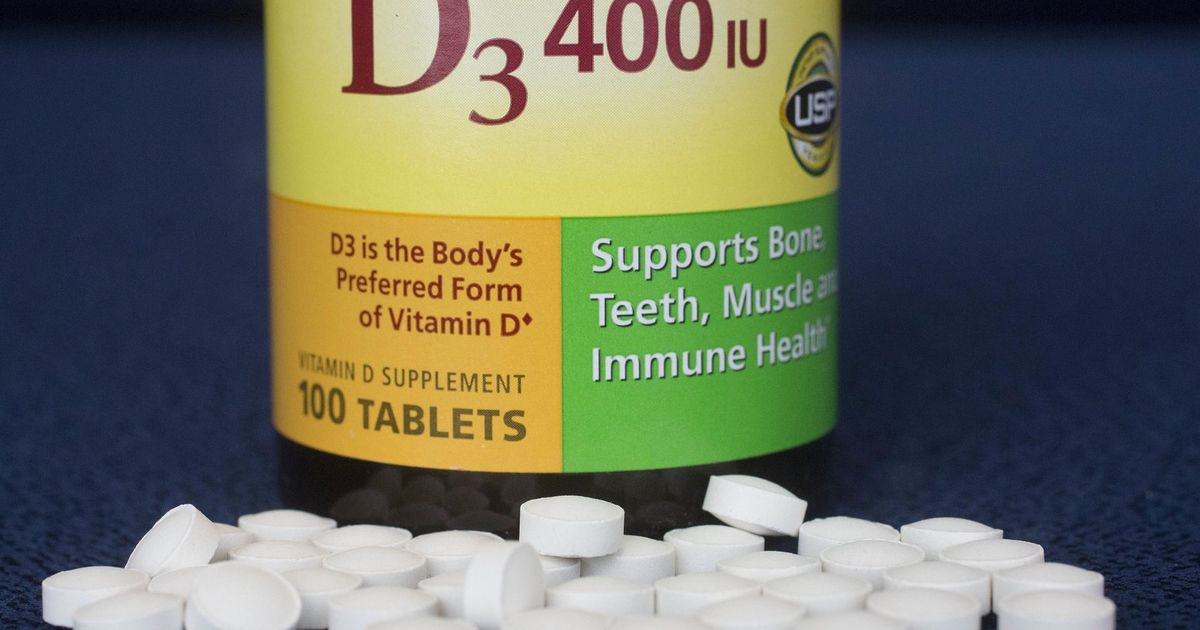About nutrition
We received some great questions below My recent column on recent vitamin D researchSo this week we’re going to answer some of them and two additional questions we’ve received about nutritional supplements.
Do infants and children still need vitamin D supplements?
Recent research has overturned the idea that most adults should take vitamin D supplements Infants and young children do benefit from vitamin D supplementation — except for those who actually have a deficiency or certain health conditions. In children, vitamin D deficiency leads to rickets, a painful disease in which the bones become soft, weak, misshapen and deformed. Severe rickets can cause stunting, growth retardation, and other serious health problems.
Breast milk alone does not provide adequate amounts of vitamin D to infants, and prolonged exclusive breastfeeding without vitamin D supplementation can lead to rickets. Formulas are fortified with vitamin D, but they don’t provide enough unless your baby drinks 32 ounces daily. Recommended by the American Academy of Pediatrics All infants who are at least partially breastfed, or who consume less than 32 ounces of vitamin D-fortified formula daily, should take a 400 IU vitamin D supplement per day. After the 1st birthday, the recommended dose increases to 600 IU per day.
Although sunlight can be a source of vitamin D, the AAP strongly recommends that all children avoid direct sun exposure as much as possible. They also recommend using shade and clothing to protect infants, especially those under 6 months of age, in place of sunscreen whenever possible.
The main reason I take vitamin D is for immune health. What does research say about it?
Although vitamin D plays a role in immune system function, it is still unclear whether taking vitamin D supplements can “boost” immune health. Some research has focused on whether vitamin D can reduce the risk of developing autoimmune diseases (autoimmune diseases in which the body’s immune system attacks its own organs and tissues). Common cold, seasonal flu, COVID-19, etc.
Vitamin D and Omega 3 Tests I Wrote last monthfound that they were taking 2,000 IU of vitamin D daily for 5 years. Reduced incidence of autoimmune disease About 22% compared to placebo. For context, 123 participants in the vitamin D group were diagnosed with an autoimmune disease during the study compared with 155 participants in the placebo group. , rheumatoid arthritis, psoriasis, and autoimmune thyroid disease (Hashimoto’s thyroiditis, Graves’ disease). Other examples include multiple sclerosis, type 1 diabetes, lupus, and inflammatory bowel disease. Note that the risk of developing autoimmune diseases is partly genetic.
Results of randomized controlled trials A study published earlier this month in the British Medical Journal found that participants who had not taken vitamin D supplements were significantly more likely to be vitamin-naive when they then took 800 or 3,200 IU of vitamin D daily for six months. found that they were no less likely to contract the COVID virus than others. D. The authors of this study noted that their findings were consistent with other recent randomized controlled trials that did not report the effects of vitamin D supplementation on the risk of upper respiratory tract infections.
Are gummy multivitamins as good as the brands that come in tablets and capsules?
Multivitamin and mineral supplements come in a variety of formulations, including tablets, capsules, softgels/gelcaps, powders, liquids, chewables, and gummies. For most people, the “right” vitamin formulation is what you prefer. No. Gummy vitamin supplements are an exception.
Gummi vitamin and mineral supplements contain less nutrients than their “regular” counterparts because some vitamins and minerals are not easily incorporated into the gummies and others are not included because they taste bad. Comparing gummy multivitamins to standard multivitamins shows that gummies tend to contain fewer nutrients, less nutrients, and a higher price. Also, the wet, gel-like consistency of gummy supplements can cause some of the nutrients to break down faster, so they expire sooner.
The Center for Science in the Public Interest tested 37 brands of gummy multivitamin/mineral supplements. No substitute for regular multivitamin tabletsIndependent testing by ConsumerLab found several gummy supplements, especially gummy multivitamins. Contains no labeled amounts of vitamins and minerals or impurities.
Are dietary supplements regulated?
The dietary supplement industry brings in billions of dollars each year with an estimated 90,000 products on the market that contain vitamins, minerals, herbs or other botanicals, amino acids, probiotics or other substances. A 2015 Consumer Reports survey found that most people believe dietary supplements have been reviewed for safety by the U.S. Food and Drug Administration.
Unlike prescription and over-the-counter drugs, which require FDA approval before they are marketed, the FDA does not have the power to review the safety and efficacy of dietary supplements prior to marketing. FDA can take action through warnings or recalls (often voluntary) if it receives reports of: Supplements already on the market It’s causing harm, but even if this happens, it can take years and may be ineffective.
One of the biggest concerns about supplement safety is Adulteration due to ingredients not listed on the labelSeveral independent organizations provide quality testing, notably US Pharmacopeia, ConsumerLab and NSF International. Their seal of approval means that their supplements are properly manufactured, contain the listed ingredients on their labels, and are free of harmful levels of contaminants. You can get it, but we cannot guarantee that the product is safe or effective.




